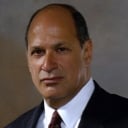Joel Cohen
March 24, 2003 | National Law Journal
Don't Let Your E-mail 'Papering' Hurt Your ClientIn an age of increased court-ordered surveillance — prosecutors may now surveil e-mail accounts — a lawyer's "papering" of his legal advice may come home to harm a client.
By Joel Cohen and James L. Bernard
8 minute read
February 15, 2007 | National Law Journal
No gatekeeper of justiceThe rape prosecution of three Duke University lacrosse players has exposed to a national audience an unbridled abuse of prosecutorial power. From the outset, the Durham County, N.C., district attorney, Michael B. Nifong, violated so many legal and ethical rules that the case has become a national scandal.
By Bennett L. Gershman and Joel Cohen/Special to The National Law Journal
5 minute read
February 13, 2012 | Texas Lawyer
The Risks of Taking Your Electronic Devices AbroadNow, even without reasonable suspicion of any wrongdoing, the government can search, copy and seize travelers' laptops and other electronic devices at the border and can potentially continue to access personal and work data and information stored in the cloud, indefinitely and in an ongoing manner.
By Katherine A. Helm and Joel Cohen
10 minute read

December 12, 2011 | Law.com
The Illegality of Advocating for Jury NullificationJoel Cohen and Katherine Helm examine the implications of a one-man campaign being waged outside one of the highest-profile federal trial courts in the U.S. on behalf of "jury nullification," a doctrine that encourages jurors to decide cases irrespective of the law given to them during trial.
By Joel Cohen and Katherine A. Helm
10 minute read

February 13, 2012 | Law.com
The Risks of Taking Your Electronic Devices AbroadIn this era of ever-evolving technology and increasing encroachments on personal data and privacy, Katherine A. Helm and Joel Cohen examine the special burdens faced by attorneys who travel with sensitive information stored on their electronic devices.
By Katherine A. Helm and Joel Cohen
10 minute read

June 10, 2013 | New York Law Journal
Criminal Attorney and Client: Who Calls the Shots?In his Ethics and Criminal Practice column, Joel Cohen of Stroock & Stroock & Lavan writes that while some decisions - whether to testify, or to accept a plea - are absolutely the client's, and in other matters a lawyer has veto power, such as when the client suggests an unethical act be committed on his behalf, what of accepting or insisting on immunity from the government? Or deciding a lesser charge should also be submitted to the jury?
By Joel Cohen
14 minute read
March 22, 2004 | National Law Journal
Prosecutors tell lies, tooMartha Stewart stands convicted primarily of lying to federal officials in informal interviews about a matter that did not result in her prosecution for substantive criminal wrongdoing. As a result of her lies, she will lose her liberty, her reputation and her financial empire. One lesson from this case is that it's bad to lie, particularly to a federal prosecutor, because he will catch you and punish you. But many will appreciate the irony in such a prosecution.
By Bennett L. Gershman and Joel CohenSpecial to The National Law Journal
5 minute read
January 28, 2008 | National Law Journal
Why a public outing?The Mitchell Report's public identification of 85 baseball players as illegal drug users is a dangerous practice. U.S. history is replete with public accusations, often false, of people being witches and communists. While the Mitchell Report may seem to continue this prejudicial behavior, the report would have appeared less credible and received less attention if players hadn't been named.
By Joel Cohen Bennett L. Gershman / Special to The National Law Journal
5 minute read

October 08, 2007 | National Law Journal
When to fault client choicesThe news of presidential candidate Fred Thompson's involvement in the legal representation of two Libyans charged in the Pan Am 103 bombing is not about a lawyer's ethical choice to defend an unpopular client. The real question is whether Thompson and his partners had any affirmative obligation to represent the terrorists, and whether the public has a right to consider that choice of representation � and subsequent justification � in evaluating Thompson's character and fitness to be president.
By Joel Cohen & Bennett L. Gershman / Special to The National Law Journal
5 minute read
May 04, 2010 | Daily Business Review
Ethical issues involving judges who Google?The 2nd Circuit faced an unusual appeal in which a criminal defendant raised an intriguing question about the perspectives that a judge can properly bring to bear on the bench.
By Joel Cohen and Katherine A. Helm
9 minute read
Trending Stories
- 1Gibson Dunn Sued By Crypto Client After Lateral Hire Causes Conflict of Interest
- 2Trump's Solicitor General Expected to 'Flip' Prelogar's Positions at Supreme Court
- 3Pharmacy Lawyers See Promise in NY Regulator's Curbs on PBM Industry
- 4Outgoing USPTO Director Kathi Vidal: ‘We All Want the Country to Be in a Better Place’
- 5Supreme Court Will Review Constitutionality Of FCC's Universal Service Fund
More from ALM
- Legal Speak at General Counsel Conference East 2024: Match Group's Katie Dugan & Herrick's Carol Goodman 1 minute read
- Legal Speak at General Counsel Conference East 2024: Eric Wall, Executive VP, Syllo 1 minute read
- Legal Speak at General Counsel Conference East 2024: Virginia Griffith, Director of Business Development at OutsideGC 1 minute read



